Past The Patch: In Our Blood
SPOTLIGHTING MELANIE
It seems most first responders have some form of connection to the field before jumping in feet first. Melanie did, too.
“My parents actually started dating at the firehouse.” The eldest of two, Melanie grew up as the daughter of a Deputy Fire Chief and an EMS Captain. Her dad’s charred helmet still hangs proudly in the living room, and family photo albums sport pictures of her then pregnant mom driving around an ambulance or slipping into fire gear. But her parents weren’t just accomplished first responders–they were star mentors, too. While the nature of their jobs may have meant never being able to pull the ‘I’m sick’ card, there was still an abundance of love and support, “They made every sports game, every after school activity,” she recalls, “[They’ve] always been fully involved in my life growing up…We’re very tight knit.”
Early on, Melanie knew she wanted to follow in her family’s footsteps of serving the community. By six, the only thing she longed to be was a Pennsylvania State Trooper, so much so that she dedicated her childhood in pursuit of becoming the perfect candidate: getting good grades, excelling in sports and, of course, practicing discipline. Upon receiving her associate’s degree from Penn State University, Melanie was informed she had been accepted into the academy. The dream she’d held since girlhood was seemingly in reach. But life has a way of messing up our plans, and unfortunately, after two failed attempts at the academy thanks to a grueling knee injury, she was forced to change course.
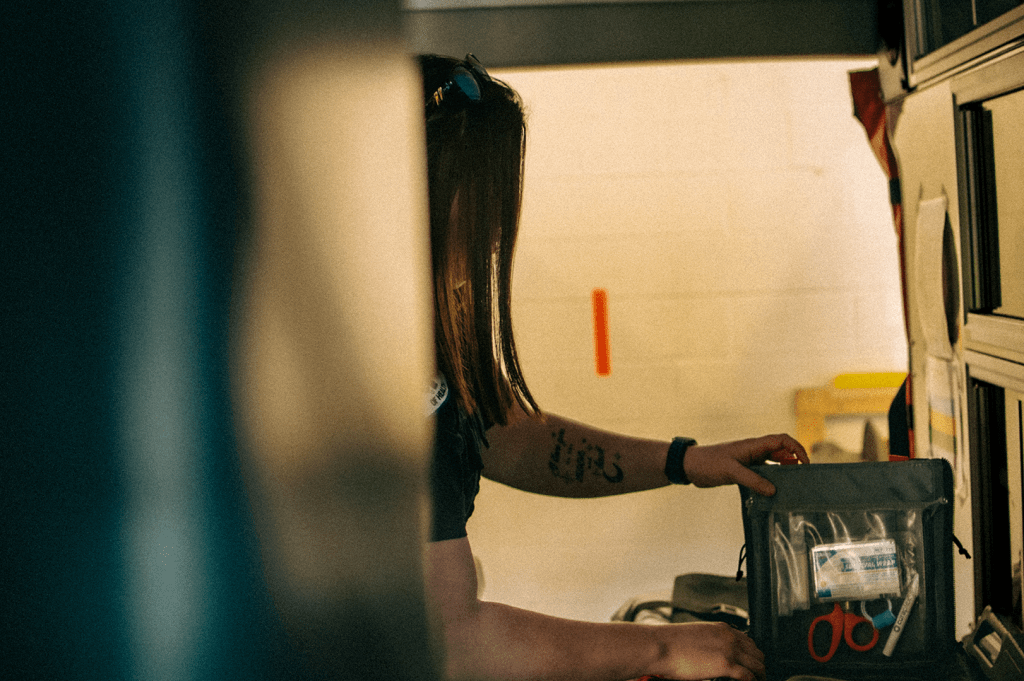
In lieu of pursuing being a state trooper, Melanie decided to try another role in the first responder world: firefighting. While it hadn’t been her first choice, there was still camaraderie and excitement in being a part of a crew. After meeting some of the volunteer staff who also worked the ambulances, she figured she’d go for a ride along and see what happens–and something did.
“Something just clicked,” she recounts. Just as soon as the shift had started, Melanie and her friend, Beth, were dispatched to a call, “I remember the feeling of adrenaline pumping through my veins.” As the siren wailed and the lights flickered off houses that passed by in a blur, one thing became clear as day, “I knew right there that this is exactly what I was meant to do–helping people in their worst moments.”
Melanie’s career in EMS started at Union Fire Company as a volunteer back in 2017. By that point, she’d been a firefighter for two years. After obtaining her EMT certification, she applied to Lancaster EMS and was soon accepted for a full time position, “Being on the truck is like a breath of fresh air,” she proclaims. “I don’t know how else to explain it. I feel as though I am home.” But in mid February two years ago, one day would change everything.
The call was seemingly routine. Melanie and her partner, Sam, had been dispatched for an unknown EMS person down. Once on scene, it became clear the patient, a male, was very hesitant and paranoid. It took some time, but eventually the pair were able to get him into the back of the ambulance. While Sam stepped up to administer medication, she asked Melanie and a police officer who’d been on scene to hold the patient’s arms down. “I kept stating to the patient that it was okay” Melanie recalls. But as soon they placed their hands on him, the situation escalated, “He kangaroo kicked the officer multiple times and started hitting and kicking me,” In the chaos, she felt a burning sensation in her abdomen but didn’t think anything of it.
“I remember looking down and seeing the knife. I remember seeing him making stabbing motions into my shirt and not stopping. It was then that she realized the gravity of the situation: she’d been stabbed.
After yelling out that the patient had a knife, Sam pulled Melanie back as her boots were stuck between the litter and the bench seat. Suddenly, a gunshot went off and the pair rushed out of the ambulance, unaware if the remaining two people inside had been hurt, or worse, “I remember shaking and not being able to hold down my emergency button [on my portable radio]. I remember Sam yelling for help over her radio. Then, it was quiet.”
Melanie would find out later that thankfully, neither the officer or the patient were injured when the gun went off. But only after being treated at the hospital would the reality of what had just happened start to sink in, “I remember Sam and I consoling each other and Captain Ray coming in to be there for us.” There weren’t words to describe the confusion, only chaos and fear.

While the incident may have left a scar, the mental wounds were worse, “My life changed drastically,” Melanie explains, “I went from being this strong-willed, confident, happy, goofy, loving person to just a walking corpse trying to get by.” Immediately, symptoms of Post Traumatic Stress Disorder (PTSD) began to set in. “Everytime I closed my eyes, I was brought back to the moment.” In addition to nightmares, the event permeated through waking life–and it didn’t take long for loved ones to notice, “I was not sleeping. I was not eating…My family, friends and co-workers were worried about me.”
It takes a special kind of person to don the uniform. But while the belief that first responders are everyday heroes is not misplaced, the assumption they’re mentally indestructible, is. With a job inextricably linked with trauma and risk, there’s bound to be an uptick in mental health issues–and the statistics reflect this. According to the Institutes of Health, over 80% of first responders experience traumatic events on the job, and 1 in 3 will go on to develop PTSD. Among this group, studies have indicated prevalence of PTSD in emergency medicine personnel likely ranks between 20-30%.
“We go into situations that can change for the worse at the blink of an eye,” Melanie expresses, “Going into each shift not knowing if you’re going to come home takes a toll.” But while trying to tread water in the wake of trauma, there was a lighthouse to the sea: her family.
“My parents played a huge role in my healing process. With them both being first responders, they get it.” Not only did Melanie’s family function as a source of solitude and understanding, they also aided in getting her back on her feet. “My parents pushed me to start my healing process and to get back into the routine of things.” But when she settled back into life, she did so with a new perspective–and passion.
“When I first started this job, it was known that you just ‘suck it up’. If you can’t handle it, go find another job,” she details, “I was already on the peer support team at Lancaster EMS, but this lit a fire under me.” Along with Sam, Melanie began advocating for more mental health resources for her colleagues. Additionally, she realized she could channel some of her pain inside into empathy, connecting with fellow EMTs and Paramedics in a way most others cannot.
While she acknowledges that healing is a journey–and one she’s still currently on–Melanie has undergone some positive personal shifts in the wake of her experience, “My perspective on life did change. I realized in that moment that we are not guaranteed to see another day.” She also notes a deeper appreciation for her loved ones, and a greater ability to not ‘sweat the small stuff’.
But when it comes down to what she wants the public to know, it’s the very same reason this series was started: to see the human beneath the uniform, the person past the patch. “The people in EMS,” she says, “we’re human.” And while being injured in the line of duty has undoubtedly shaped her life, she does not want the event to define it. Instead, she hopes her journey will inspire, serving as a reminder that our struggles and hardships are not reflections of our character, but rather reminders of our humanity.
It may take a special person to work in EMS, but it only takes a kind heart to make a difference. As Melanie fulfills her childhood dream of service by stepping onto that truck each day, she hopes the community will find its own way, too.



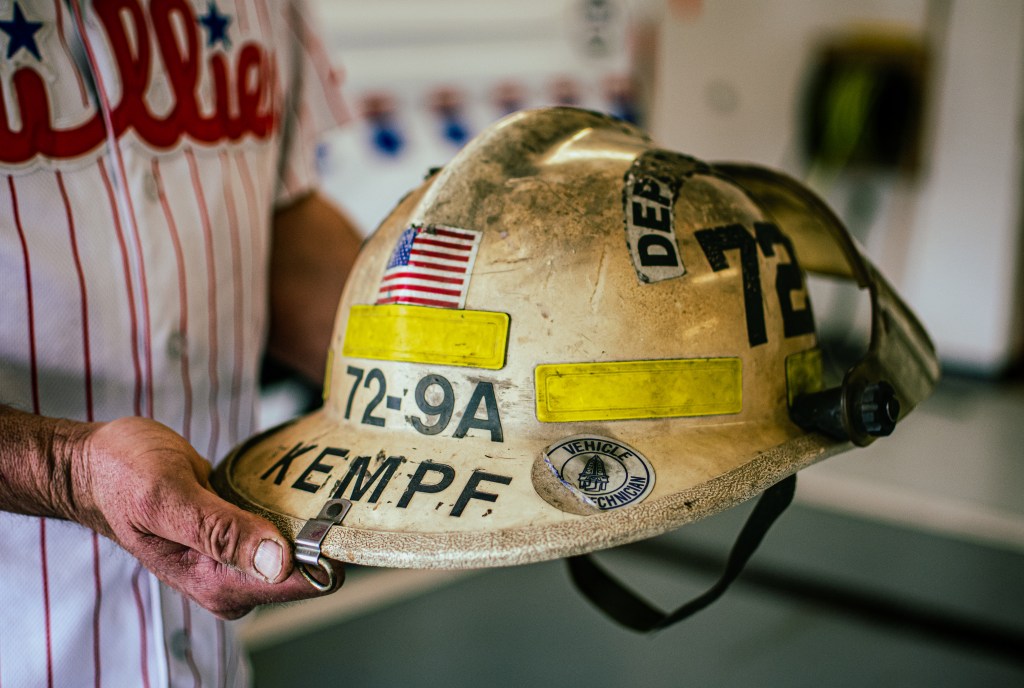

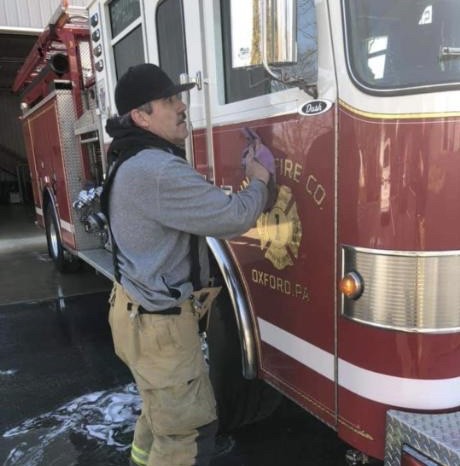


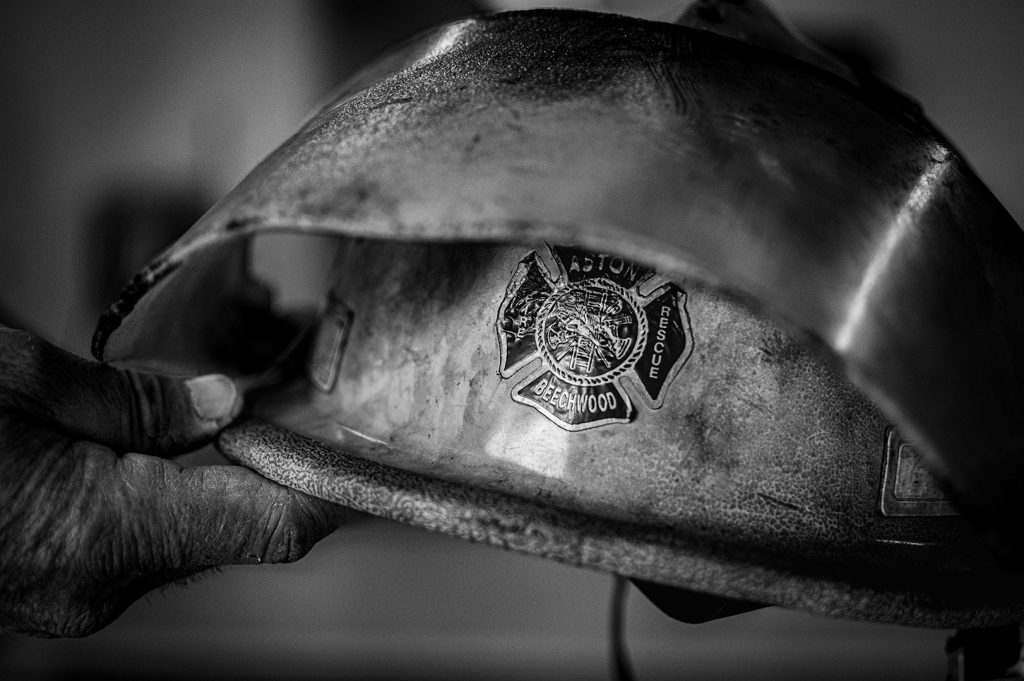
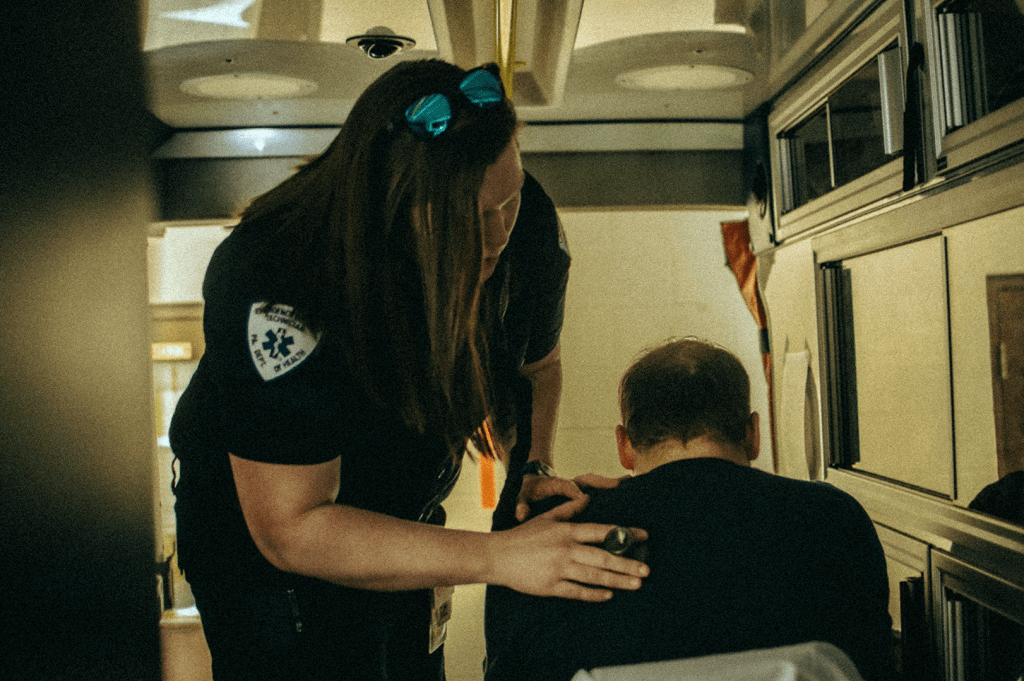

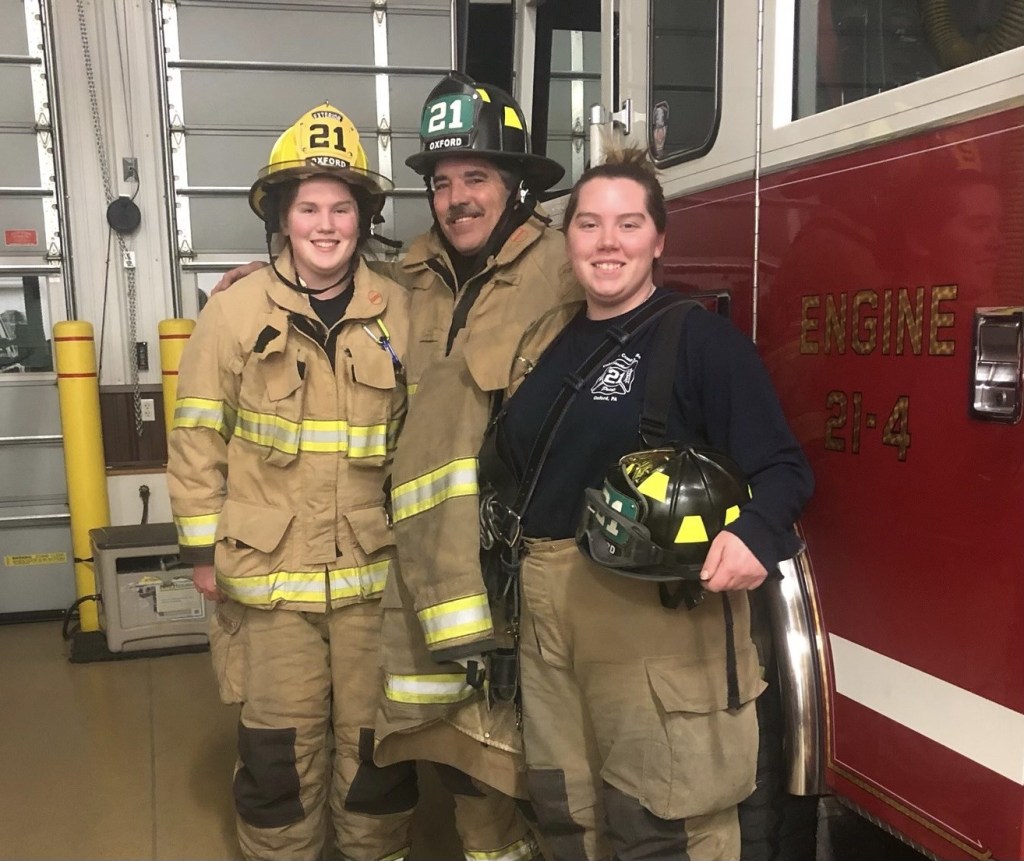
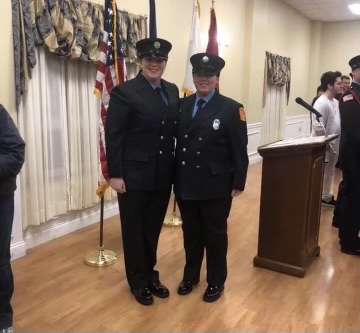
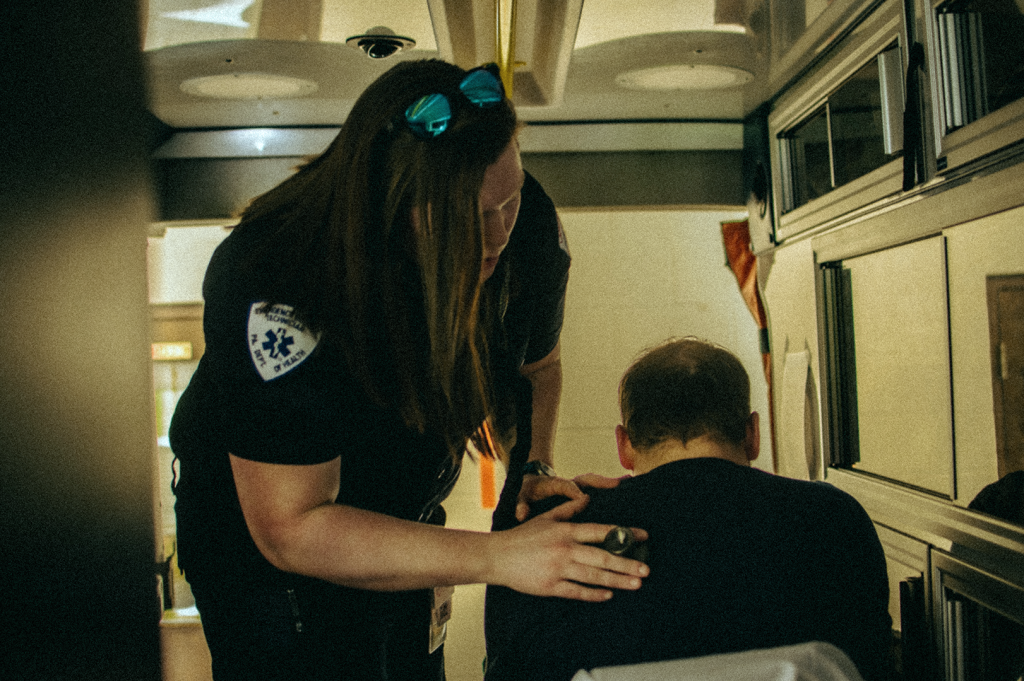
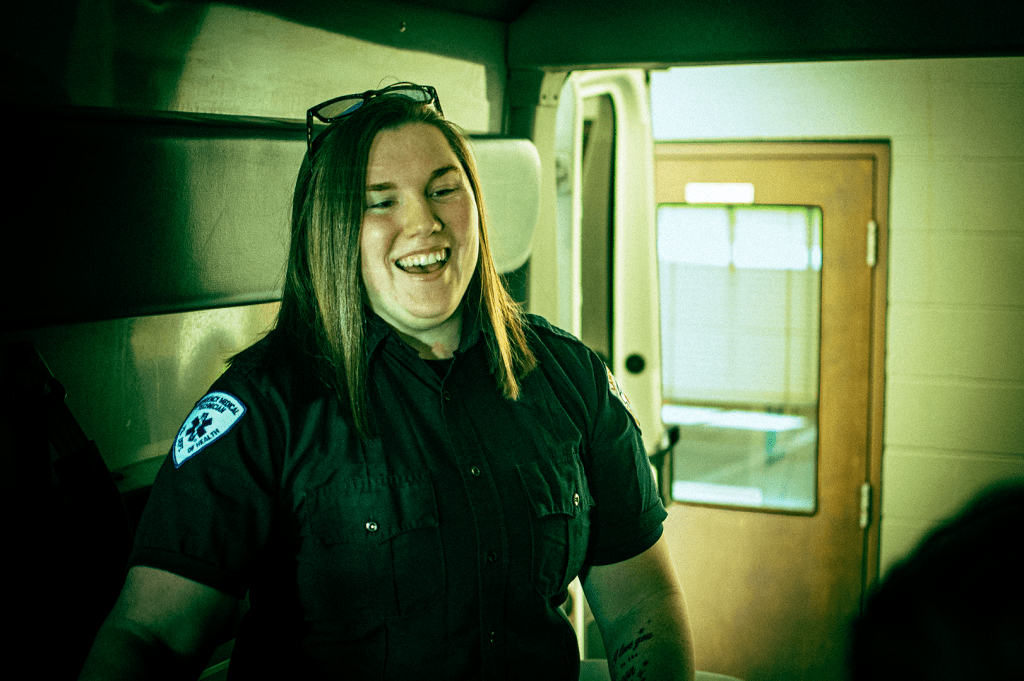

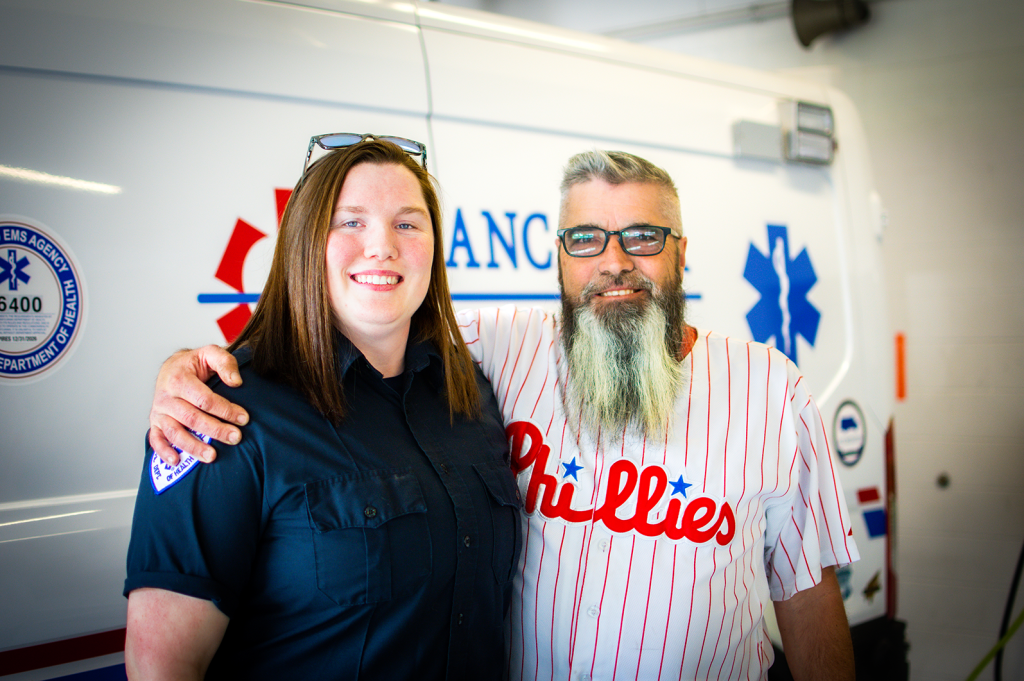

Leave a comment